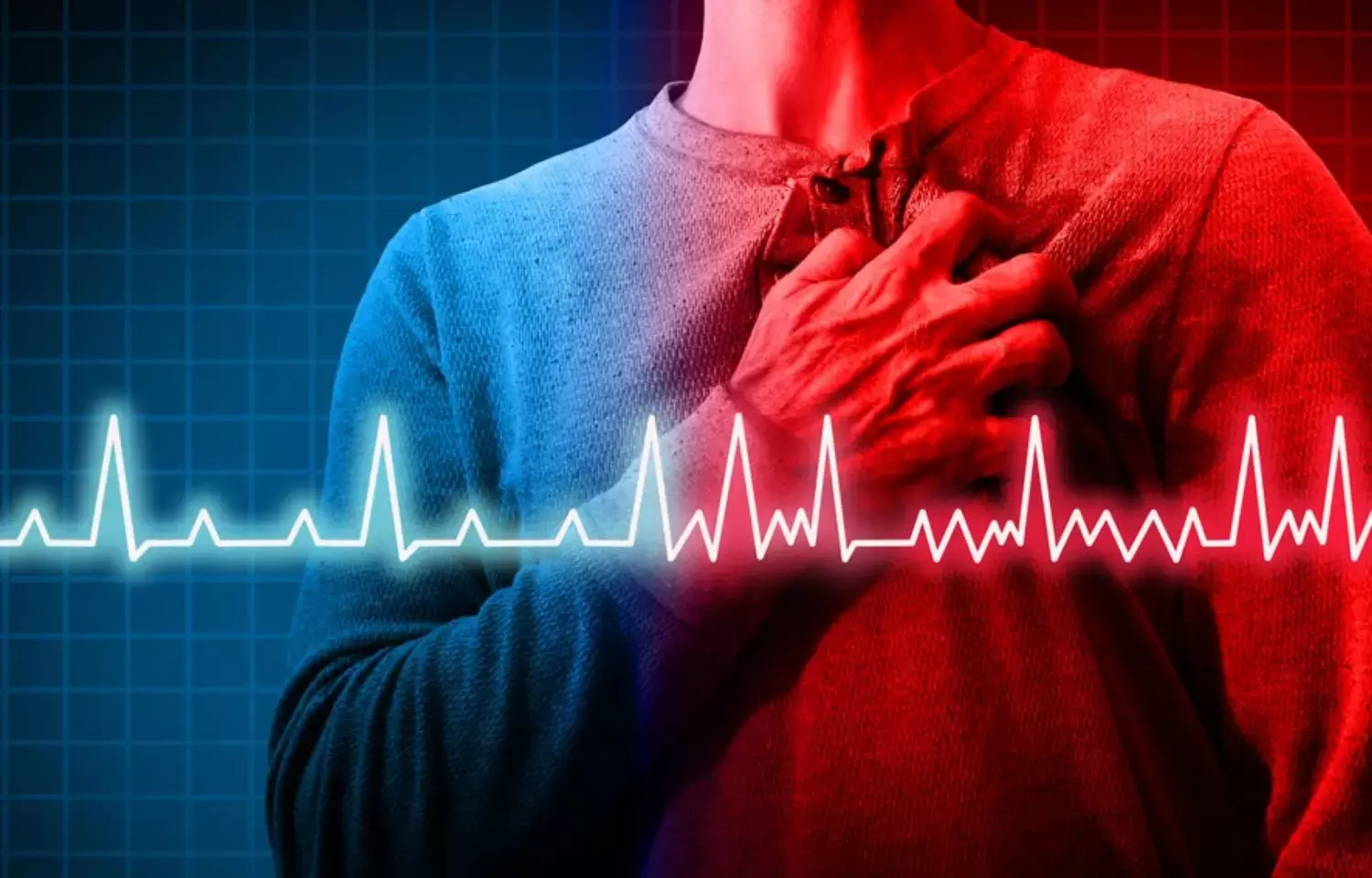- Home
- Medical news & Guidelines
- Anesthesiology
- Cardiology and CTVS
- Critical Care
- Dentistry
- Dermatology
- Diabetes and Endocrinology
- ENT
- Gastroenterology
- Medicine
- Nephrology
- Neurology
- Obstretics-Gynaecology
- Oncology
- Ophthalmology
- Orthopaedics
- Pediatrics-Neonatology
- Psychiatry
- Pulmonology
- Radiology
- Surgery
- Urology
- Laboratory Medicine
- Diet
- Nursing
- Paramedical
- Physiotherapy
- Health news
- Fact Check
- Bone Health Fact Check
- Brain Health Fact Check
- Cancer Related Fact Check
- Child Care Fact Check
- Dental and oral health fact check
- Diabetes and metabolic health fact check
- Diet and Nutrition Fact Check
- Eye and ENT Care Fact Check
- Fitness fact check
- Gut health fact check
- Heart health fact check
- Kidney health fact check
- Medical education fact check
- Men's health fact check
- Respiratory fact check
- Skin and hair care fact check
- Vaccine and Immunization fact check
- Women's health fact check
- AYUSH
- State News
- Andaman and Nicobar Islands
- Andhra Pradesh
- Arunachal Pradesh
- Assam
- Bihar
- Chandigarh
- Chattisgarh
- Dadra and Nagar Haveli
- Daman and Diu
- Delhi
- Goa
- Gujarat
- Haryana
- Himachal Pradesh
- Jammu & Kashmir
- Jharkhand
- Karnataka
- Kerala
- Ladakh
- Lakshadweep
- Madhya Pradesh
- Maharashtra
- Manipur
- Meghalaya
- Mizoram
- Nagaland
- Odisha
- Puducherry
- Punjab
- Rajasthan
- Sikkim
- Tamil Nadu
- Telangana
- Tripura
- Uttar Pradesh
- Uttrakhand
- West Bengal
- Medical Education
- Industry
Ablation better than drugs for reducing dementia risk in patients with AF

USA: Results from a large observational study show that the long-term risk of dementia among patients with atrial fibrillation (AF) is lower among those who undergo catheter ablation rather than receiving antiarrhythmic drugs (AADs) alone.
According to the findings reported at the Heart Rhythm 2022 by Emily Zeitler, Dartmouth Hitchcock Medical Center, Lebanon, NH, dementia risk was 40% lower in the ablation group (HR 0.59). The finding was found to be consistent in both men and women and among patients treated in the most recent time period.
No randomized trial till now has evaluated the impact of different rhythm control strategies on dementia risk in AF there is however mounting observational evidence that keeping patients in sinus rhythm may reduce dementia risk. "If that's true and if that is somehow related to the AF itself or the suppression of AF itself," said Zeitler, "then it stands to reason that catheter ablation might do a better job at reducing the risk of dementia as a component of A-fib treatment."
Zeitler and colleagues explored the above possibility, for which they used Optum Clinformatics Datamart, a repository of claims data from patients with private insurance, including Medicare Advantage. Individuals younger than 18, those with less than 12 months of continuous plan enrollment, and those with a dementia diagnosis or a history of various cardiovascular procedures were excluded. The analysis included 38,176 propensity-matched patients (mean age 65; 36% women)—half in the ablation group and half in the AAD group—with claims spanning from May 2000 to March 2021. The mean CHA2DS2-VASc score was 2.91, and 77% were on oral anticoagulation.
Patients in the AAD group had filled prescriptions for at least two different AADs and had at least one clinical visit with a primary AF diagnosis in the past year. To reflect current guidelines regarding catheter ablation use which state that ablation should be used after AAD failure in most patients, individuals in that group had to have a claim for an ablation procedure plus a filled prescription for an AAD at least 30 days prior to the procedure. A diagnosis of dementia was the primary outcome, with death as a competing risk.
Following were the study's key findings:
- Ablation was associated with a lower risk in the overall cohort and among those treated in the second half of the study period (HR 0.59; 95% CI 0.51-0.68), which reflects contemporary protocols, techniques, and tools for ablation and AAD therapy.
- Ablation was associated with a lower risk of dementia in both women (HR 0.60) and men (HR 0.55).
- To assess the risk of residual confounding, the investigators did a falsification analysis looking at the relationship between ablation and risks of shingles, multiple sclerosis, and ulcerative colitis. No significant associations were found, indicating limited residual confounding in the main analysis.
After her presentation, Zeitler was asked about whether ablation is protecting the brain over the long run despite the fact that the procedure itself can cause emboli to travel to the brain.
In response, Zeitler said she'd be cautious about inferring causation. "I think it highlights the complexity of the relationship between dementia and atrial fibrillation. It really is not adequately explained by microemboli or microhemorrhages either from the disease itself or the therapies that we prescribe for A-fib."
Reference:
Zeitler E. Risk of dementia among patients with atrial fibrillation treated with catheter ablation versus antiarrhythmic drugs. Presented at: HRS 2022. April 30, 2022. San Francisco, CA.
Dr Kamal Kant Kohli-MBBS, DTCD- a chest specialist with more than 30 years of practice and a flair for writing clinical articles, Dr Kamal Kant Kohli joined Medical Dialogues as a Chief Editor of Medical News. Besides writing articles, as an editor, he proofreads and verifies all the medical content published on Medical Dialogues including those coming from journals, studies,medical conferences,guidelines etc. Email: drkohli@medicaldialogues.in. Contact no. 011-43720751


